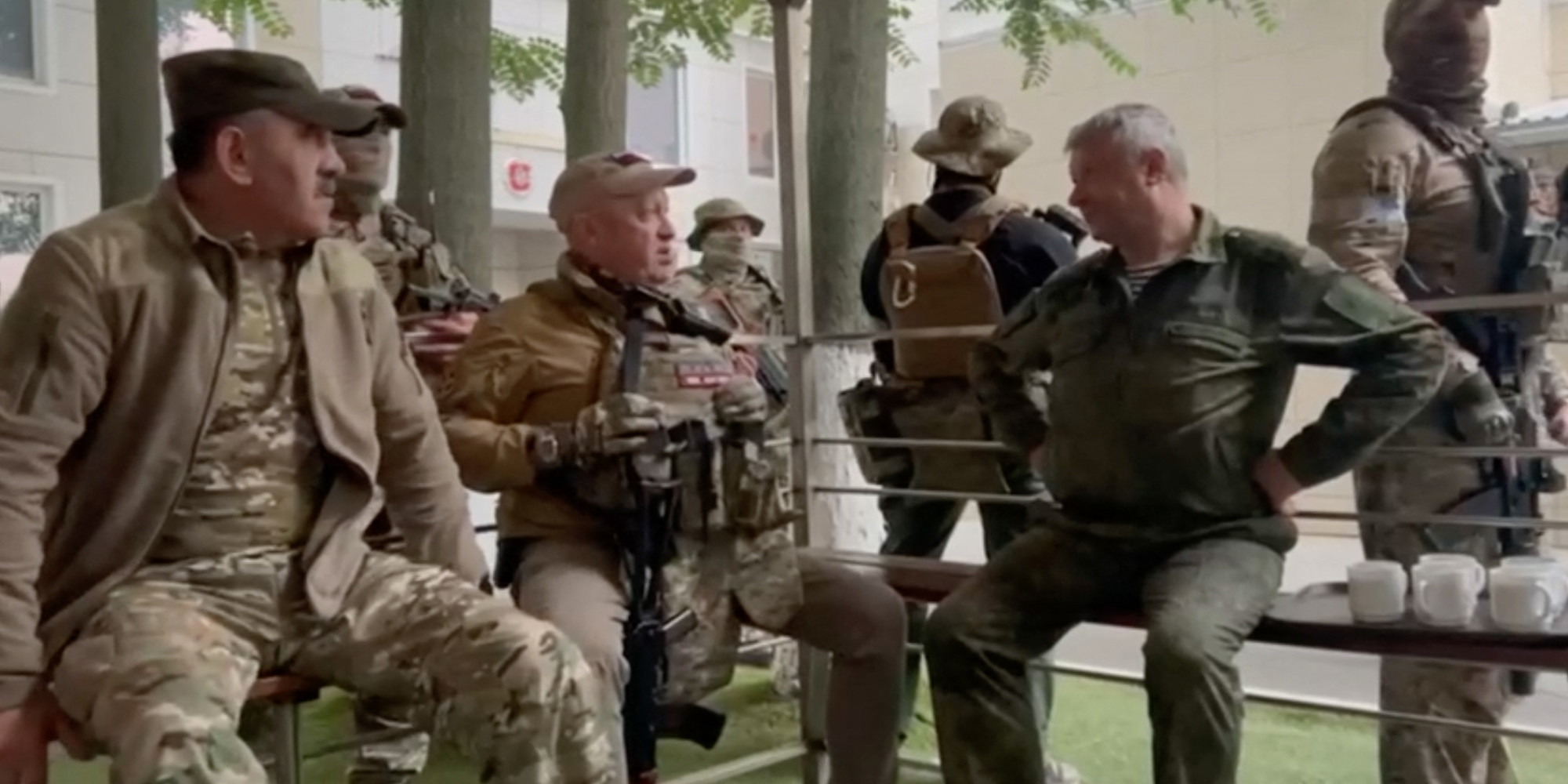Europe 1 with AFP 12:02 pm, June 24, 2023
The leader of the Wagner group, which rebelled against the Russian command, announced that he was at the army headquarters in Rostov and controlled several Russian military sites. Vladimir Putin reacted quickly and vowed to punish the "traitors" of the paramilitary group.Russian President Vladimir Putin has vowed to punish the "traitors" of the Wagner paramilitary group, after his leader threatened to overthrow Moscow's military command. Wagner's leader, Yevgeny Prigozhin, 62, openly rebelled against the Russian command.
He issued a series of messages from Friday night to Saturday, claiming that he had returned with his mercenary troops to the southern Russian city of Rostov, claiming to have taken control of military sites. Here's what we know so far.
>> READ ALSO - Rebellious, the leader of the Wagner group "opened a civil war against Putin," says Sergei Zhirnov
What is the trigger for rebellion?
For months, Prigozhin has been in a power struggle with the Russian military hierarchy, blaming them for the deaths of his troops in eastern Ukraine. On several occasions, he accused high-ranking military officers of not adequately equipping his private army, of delaying the advance of his troops with bureaucratic issues, while taking credit for all the victories won by Wagner's men.
On Friday, Prigozhin vented his anger, claiming that Moscow's military rulers had ordered strikes on his camps and killed scores of Wagner paramilitaries. He said senior Russian military officers should be arrested, vowing "to go all the way." He later claimed that his forces had shot down a Russian military helicopter.
A few hours later, Wagner's chief claimed that military sites in southern Russia, in Rostov, were "under control" of his men. Rostov is the headquarters of the Southern Command of the Russian Army from which military operations in Ukraine are coordinated.
What is Moscow's reaction to these events?
The Kremlin said on Friday night that "measures were being taken" against the mutiny. Russia has tightened security in Moscow and several regions such as Rostov and Lipetsk. Vladimir Putin denounced Saturday the "mortal threat" and the risk of "civil war" posed by Yevgeny Prigozhin who openly rebelled against the Russian command. He urged the country to unite. Calling the action of Wagner's mercenaries "treason," he vowed to inflict "inevitable punishment" on them.
>> LISTEN - Wagner's rebellion: is this a turning point in the conflict between Russia and Ukraine?
Who are Wagner's mercenaries?
Wagner's mercenary army had previously been involved in conflicts in the Middle East and Africa, while denying its role. But Prigozhin acknowledged last year that he had founded the group, recruiting men from Russian prisons in exchange for an amnesty.
In eastern Ukraine, Wagner's units spearheaded intense battles with Russia. Wagner's mercenaries were at the forefront of the months-long assault on the city of Bakhmut, conquered for Russia at the cost of enormous losses in their ranks.
>> READ ALSO - War in Ukraine: what is the Wagner Group?
How is Russia impacted?
Wagner's rebellion represents the most serious challenge to date to Putin's long reign and opens Russia's most serious security crisis since he came to power in late 1999. It comes at a time when Kiev is in the midst of a counter-offensive to retake territory. The Ukrainian military said it was "monitoring" the clash between Prigozhin and Putin.
For its part, Moscow warned that Kiev's army was seizing the moment to concentrate its troops "for offensive actions" near Bakhmut. The importance of this mutiny has not escaped world leaders either. Washington, Paris, Berlin and Rome have indicated that they are closely monitoring developments.

